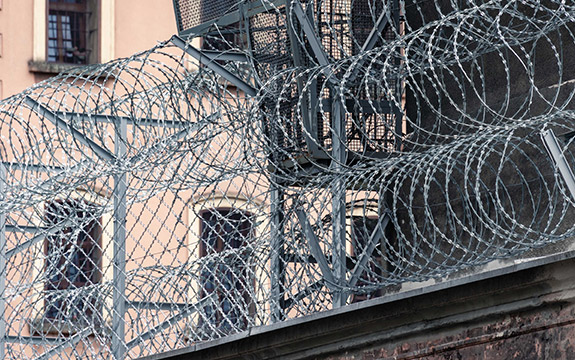Opinion: Let’s slash indigenous jail terms by a quarter

In Summary
- Opinion piece for The Australian by Professor Mirko Bagaric, Dean of Law, Swinburne University of Technology
Last year was yet another in which activists were quick to jump on to fashionable causes such as rights in the form of privacy and freedom of expression and religion.
Passed over yet again was a brutal practice in this country that should have rights campaigners shouting in unison, one that should shame Australia as a nation and that, remarkably, is worsening: the systematic and deliberate mass incarceration of indigenous offenders undermines Australia’s human rights credibility around the world.
One in 50 indigenous people is in prison. The indigenous incarceration rate is 1949 per 100,000 adult population. It is 168 per 100,000 non-indigenous Australians.
The cruel manner in which the criminal justice system treats indigenous Australians is compounded by the fact that on a range of other social and economic measures, they are the most disadvantaged people in our community.
The problem of indigenous prisoner over-representation is not new. Nor is it a problem that is under-reported. The problem has been described as “a national disgrace and international embarrassment” by the Law Council of Australia. NSW Attorney-General Mark Speakman said there was “no question that the level of indigenous incarceration in Australia continues to be a national tragedy and a major concern to the NSW government”. Former federal attorney-general George Brandis also called indigenous over-incarceration a “national tragedy”.
The federal government commissioned (another) report into the problem, Pathways to Justice, more than a year ago. That document made more than 30 recommendations. They have not been acted on and, in any event, the recommendations are vague and lacking in specifics to make any concrete difference. Further, in 2013 the High Court in Bugmy v The Queen held that extreme social and economic disadvantage can mitigate a sentence’s severity.
So there has been no end of good intentions for ameliorating the problem of indigenous over-incarceration. But all these fine words, proposals for reform, and hopes for a fairer future have amounted to nothing. Not a single indigenous person will ever be spared an unjustified prison term if we just wish for it. We have not achieved zero on this issue. Indeed, we have achieved less. Things are going backwards.
For all the political and community concern about fixing the indigenous incarceration crisis, the number of indigenous prisoners is rising. There are 3 per cent more indigenous people in prison than a year ago. Worse still, the rate of indigenous incarceration has risen by almost half in the past decade.
The mass incarceration of indigenous Australians is the most serious human rights crisis of our nation and our time. Imprisonment is the most coercive and harshest sanction that we as a community impose on individuals. It can destroy much of what is meaningful to a person’s life. It can also significantly set back the interests and flourishing of family members of prisoners. We are well past the time for immediate reforms that will start working today.
More meetings by well-intentioned public servants, leading to expansive, glossy reports with their dot-point executive summaries and indexes, and long thank-you lists and copious superbly formatted footnotes, are not action. It is almost the opposite.
The best approach to reducing the unfair and discriminatory burden that our criminal justice system inflicts on indigenous Australians (who are about twice as likely to be imprisoned even for the same offence as non-indigenous offenders) is to provide a concrete mathematical sentencing discount for such offenders.
The discount that is appropriate is 25 per cent. The reason for this figure is that it is roughly the same as that conferred for an early guilty plea in most Australian jurisdictions and experience has shown that the discount is substantial enough to change behaviour (for example, encourage guilty pleas) but not so large as to undermine the integrity of the sentencing system. The need to reduce indigenous prison numbers is more compelling than the desire to encourage more guilty pleas.
Given the total lack of effective action to reduce indigenous prison numbers, this reform proposal should be extended to serving prisoners. All indigenous prisoners should have their sentence reduced by a quarter. This would mean that indigenous prisoners who have completed three-quarters or more of their prison term should be immediately released from custody.
It may sound a drastic step to retrospectively cut the length of prison terms, but it is not unprecedented. In response to the mass incarceration crisis in the US, federal legislatures passed the First Step Act in December 2018, which retrospectively reduces prison terms for thousands of federal prisoners who are incarcerated for nonviolent offences. Moreover, the incarceration rate of African-Americans has dropped by more than 30 per cent in recent years.
It is a stain on our international reputation that we now imprison a higher portion of indigenous Australians than a supposedly more racially divided America imprisons African-Americans. The distrust and anger generated among Australians over this obvious injustice is completely understandable.
The recommendation to reduce prison terms for indigenous offenders by 25 per cent might sound like a blunt instrument for change. But it will work to reduce indigenous prison numbers by approximately the same percentage. The result will be greatly improved lives for so many indigenous offenders, their families and their communities. Indeed, for us all. The social dividend would greatly outweigh what some might see as the costs of this proposal, especially when no one seems to have workable alternative solutions. We are past the point of relying on good intentions to fix anything.
Mirko Bagaric is Director of the Evidence-Based Sentencing and Criminal Justice Project at Swinburne University of Technology. This opinion piece was originally published in The Australian.

